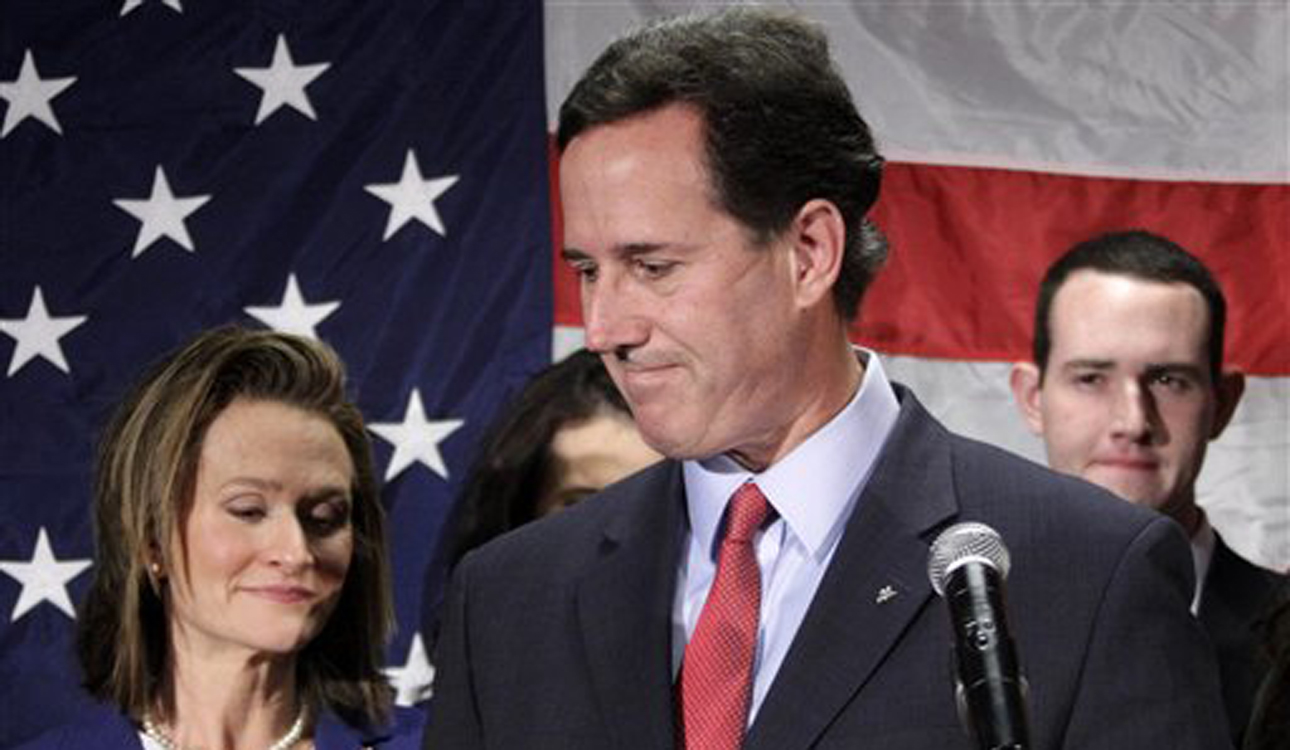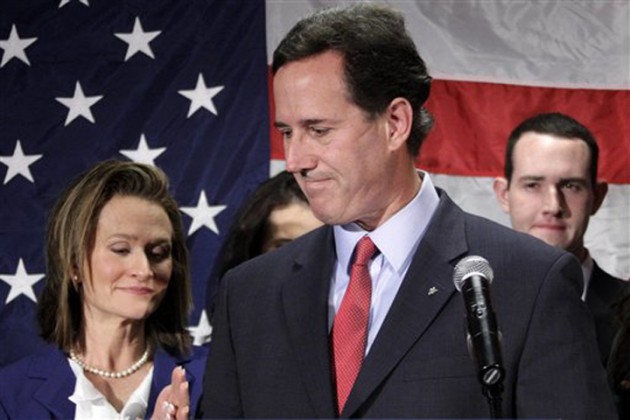

Associated Press
By Marc Levy and Kasie Hunt
Associated Press
GETTYSBURG, Pa. — Rick Santorum cleared the way for Mitt Romney to claim victory in the battle for the Republican presidential nomination Tuesday, giving up his “against all odds” campaign as Romney’s tenacious conservative rival.
Santorum’s withdrawal sets up what is sure to be an acrimonious seven-month fight for the presidency between Romney, the former Massachusetts governor, and Democratic President Barack Obama, with a focus on the still-troubled economy.
“This has been a good day for me,” Romney said to his supporters in Wilmington, Del., saying he believes Santorum “will continue to have a major role” in the Republican Party.
“This game is a long, long, long way from over,” Santorum said as he bowed out of the contest with Romney. “We are going to continue to go out there and fight to make sure that we defeat President Barack Obama.”
Romney has tried to ignore his GOP rivals and campaign against the president since he first entered the race last year with a pitch focused on the recovering but still frail economy. But Romney was forced to go after Santorum and former house Speaker Newt Gingrich after Santorum showed strength in Iowa and Gingrich in South Carolina early this year. Then Santorum kept on, memorably winning three Southern primaries.
Obama has turned squarely to face Romney, recently assailing him by name, as his campaign has worked to paint Romney as a rich elitist who will win the nomination only because he buried his opponents under millions of dollars in negative advertising.
In response, a Romney campaign spokeswoman insisted that “for Mitt Romney, this race has always been about defeating President Obama and getting Americans back to work.”
Now, Romney must rise to the daunting challenge of taking on an incumbent president backed by what’s expected to be one of the most sophisticated re-election campaigns in history. Longtime Republican strategist Ed Gillespie joined the Romney campaign this month to help, but the team hasn’t been able to expand much beyond the small core group of loyal strategists that waged the primary. The campaign will also need to ramp up the process to vet possible vice presidential picks.
Obama’s campaign has a sizeable cash advantage over Romney’s, having more than $84 million in the bank at the end of February, Federal Election Commission records show. Romney’s campaign had about $7.2 million.
Those filings show Romney has a fifth the paid staff of Obama’s campaign. He has yet to tap the resources of the Republican Party that will become available to the party nominee.
Romney trails Obama in organizing in some key battleground states such as Ohio and Florida, though Romney aides point to networks of supporters and volunteers that remain in place since his winning primary campaigns in the two electoral prizes.
The same is true in Iowa, where Romney nearly won the January caucuses, and New Hampshire and Nevada, where he did win in the primary campaign’s early days. The five are in the top 10 most competitive since 2000, and were all carried by Obama four years ago.
Other more typically Republican-performing battlegrounds Romney is eyeing at returning to the GOP column include Colorado, Virginia and North Carolina, which Obama flipped after consecutive GOP victories.
So far, polling shows people tend to like Obama more than Romney. Yet the public’s top issue is also Obama’s biggest vulnerability.
Despite recent improvements in the public’s outlook, ratings of Obama’s handling of the economy remain in negative territory. According to a Washington Post-ABC News poll released Tuesday, Romney and Obama are about even on which candidate Americans trust more to handle the economy.
Kasie Hunt, Ben Feller, Jennifer Agiesta, Jack Gillum, Charles Babington and Thomas Beaumont contributed to this report.





